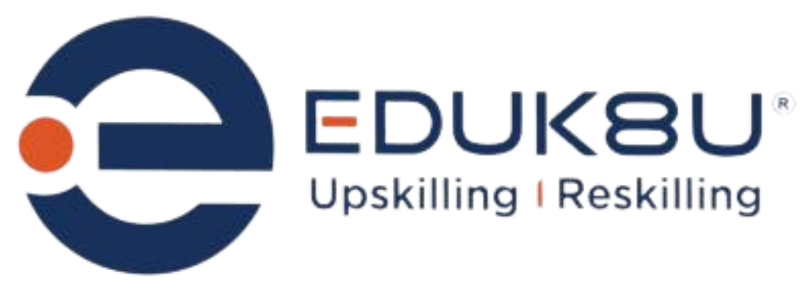Life comes with many challenges that might be inevitable. Sometimes these challenges overwhelm us and we think of giving up. However, with great resilience, one could be able to scale through the hurdles. Just like life, there are certain issues that can impact the emotional wellbeing of an organization’s workforce. Usually, when such issues are not well-managed, they can escalate further and result in decreased motivation and productivity.
Resilience is the ability to sustain optimum performance, even in the face of adversities. By building resilience among employees, there would be increased work engagement, organizational commitment, and job satisfaction. Beyond being concerned with efficiency, human resource management should also work towards improving the agility of employees. There is also the need to build a work-life balance environment within the organization.
Building Resilient Manpower: HR’s Training and Development Role
With the current shift in technology and skills, organizations are now recognizing the need for manpower optimization in terms of possessing resilience. They then state it as an essential trait that must be possessed and demonstrated by potential employees. HR roles involve helping to build a structure that helps employees develop resilience. Suffice it to say that there is prior need for training and development in HRM.
The Need for Open Communication
It is common for employees within an organization to go through certain traumatic events or even work-related stresses. To make the matter worse, most employees tend to be reluctant to share their issues with their colleagues and even their leaders. Most times, it is because such an organization lacks a clear line of communication or a structure that supports open communication. A leader that communicates resilience will put their team members in a situation that promotes renewed vigor and enthusiasm, both of which are critical to increased motivation and productivity.
By adopting an open policy and building trust, you are building strong, positive relationships as well as support networks. Team members or employees going through turbulent moments would be able to express their feelings, views, and expectations. Of course, conflict will arise. The HR department has the responsibility of managing such conflicts by making a domestic enquiry, for instance. It is important to note that conflict doesn’t destroy teams; rather, it is fear of conflict that endangers relationships. This fear often results in office politics, thus creating unhealthy relationships and competition.
Having a Solid Blueprint
If employees do not understand the goal behind the tasks they do, they might not be able to sustain their interest for an extended period. Having a blueprint that can be shared with employees is critical to achieving success. With a clear, consistent path, employees are able to develop stronger resilience. They would be willing to keep tabs on trends and the future of their industry. HR departments may also have to share statistics that promote trust and accountability.
Even with a clear path of target goal, there is the need to put a strong feedback mechanism in place. When employees get regular feedback on the projects they are working on, identifying ways to improve their performances can be recognized and adopted easily. By doing so, each employee would be able to develop their resilience.
Prioritizing Team’s Well-being
Even before the global pandemic, there has been a shift to employees’ well-being. HR departments have maintained the role of providing support to their employees, which includes supporting their mental health. Considering the fact that the pandemic has made almost everyone experience a certain level of discomfort, the road to building resilience seems clearer.
To support employees emotionally, leaders as well as HR departments may take the path of vulnerability. In other words, by speaking about your mental health struggles as a leader, you are simply encouraging your team members to open up to you about their challenges. By sharing their ugly sides of life, employees have their emotional burdens reduced.
Also, you must be able to check in with members individually. Beyond the usual greeting, ask if they would require any support. Show that you care about their wellbeing. Ask about their personal development plans and future goals. There are a number of professional degrees and graduate programs on personal development. At the same time, be willing to hear their answers. However, avoid being overbearing and too intrusive as this could signal a lack of trust.
Encouraging Practical Resilience Habits
There are many practical resilience habits that could be instilled in employees. For instance, it is a known fact that a heavy workload can negatively impact job motivation and employee productivity. In this situation, helping team members organize their to-do lists in such a way that creates less stress might be what they need to sustain their vigor and interest.
Also, setting unrealistic goals has been a major contributor to being overwhelmed. A good hack to walk around this challenge is by encouraging employees or team members to set work goals that are not only measurable but also achievable. This requires overall goals to be broken down into smaller, achievable tasks.
Another key hack that many HR management may consider counterintuitive but which is quite productive is taking short breaks. The reality is that employees require some time to recharge and re-energize. This will help them to stay relaxed, improve their focus, and perform better.
They may also need to engage in physical activities that can help them improve their sense of control and coping abilities. Such activities include yoga, meditation, among others.
Conclusion
So, despite the fact that normalcy is gradually being restored, it is obvious that challenges cannot be totally avoided. Therefore, there is a need to develop the right sense of resilience to live through them. With future changes, HR departments would be required to build a stronger and more adaptable workforce.









